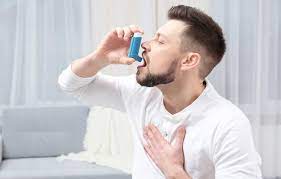Malaria
Malaria
Common Malaria (Plamodium Vivax)
A typical case presents with shivering and high fever, followed by sweating and fall in temperature. The fever comes on alternate days, and the child looks well in between. A history of a child living in an area where malaria is common in the child returned from such an area aids the diagnosis. A blood test confirms the diagnosis. The patient becomes anemic and weak.
In another case the fever may occur every day. Shivering and rigors may not be present. If no obvious case of fever is to be found and the doctor finds that the child has an enlarged spleen, he may like to rule out malaria.
Diagnosis
It is important that the blood sample for malaria be taken before treatment is started. This test is not only important for the confirmation of the diagnosis, but also helps to ascertain the type of malaria, the precise treatment to be given immediately and to be followed later.
Falciparum Malaria
Symptoms
Besides shivering and fever, a child with this type of malaria can become quite sick. He may start loosing alertness get convulsions and may become unconscious.
Treatment
Treat this condition as emergency. Many lives are saved by appropriate treatment.
Tell your doctor if your child has G-6-PD deficiency, children with this deficiency may react badly to some of the antimalarial drugs.
Prevention
Co operate with the public health authorities in prevention of the spread of this disease.
The malaria mosquito thrive on fresh water, so make sure that the water storage sources in your building or house are well cared for. In areas where malaria is common, care should be taken to prevent mosquito bites. Have automatic door closer and window netting installed if this is possible. In the near future, we may have mosquito nets that are impregnated with a medicine to repel mosquitoes.
Your doctor may put you on some drugs to be taken regularly once a week if you live in a malaria infested area or you are going to visit such an infested area. However some older children and adult may develop partial or complete immunity against the disease after living in a locality with malaria for a number of years,, and do not need this continuous prophylactic (preventive) treatment. If however you live in an area where malaria is unknown, start giving your child the prophylactic medicines 2 weeks before you start your journey to a malaria infested area. The drug is to be given throughout the stay in that area and to be continued for 2 months after returning home.
Do not take these drugs without proper advice, indiscriminate use may result in the development of resistance to certain anti-malarial drugs.
https://madhuchhandacdmo.blogspot.com/2021/02/malaria.html



.jpeg)
Comments
Post a Comment